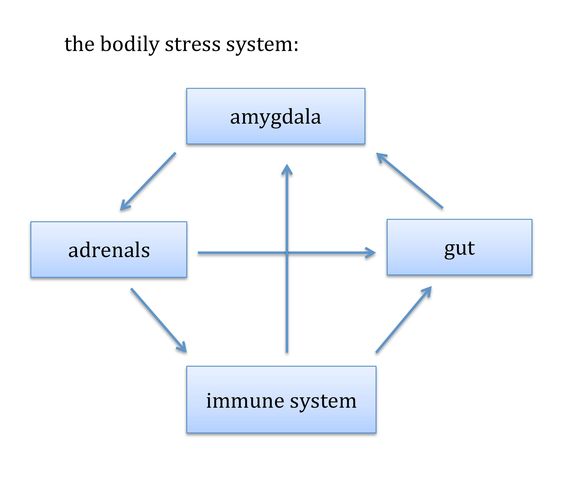Hip
Senior Member
- Messages
- 18,300
A lot of RT-clients need to learn to say no to people and their demands.
That seems to be similar to what @sueami said, but in her case, she was placing these demands on herself, trying to be too perfect, and holding herself up to too high a standard.
In that way, she had a learned response that placed stress and heavy demands upon herself.
I fall in the 40% of RT-clients who actually need to learn to live life slower, to calm the fuck down. To not try and control everything.
Again, that is not dissimilar to @sueami, who said she took on responsibility for other people’s emotional reactions, and tried to do everything herself rather than asking for help.
However, my cortisol is still low. I have two conditions: ME and low cortisol. They each have (slightly) different symptoms.
I wonder if people who have low cortisol, or a weak cortisol response, might be more sensitive to stress, and thus the sort of people who may best benefit from something like RT, which teaches you to unlearn your learned stress responses.
If we assume that a de-stressing therapy like RT may help a small percentage of ME/CFS patients, the question then is which type of patients might find RT beneficial?
Was there anything you observed about your own makeup that made you think in advance that you would benefit from RT? Obviously you were attracted to trying RT, so I wonder if you already had an inkling beforehand that it would benefit you? Did you in some way intuitively feel that it might do you good?
What I am getting at is, do you think there may be a way, via self-examination / introspection, that your average ME/CFS patient could figure out beforehand that they might be a good candidate for RT?
After RT I went to no ME.
I could take walks outside and could shower on the same day. No brainfog. I still paced myself though, rested a lot.
With your brain fog cleared up, have you been able to do any tasks that previously you could not do because of the cognitive dysfunction? For example, on the rare times that my brain fog improves, I find that I can do complex computer software programming (my profession used to be in software); but normally I am unable to do this, because the brain fog makes it almost impossible. So I find that when I am able to do cognitive tasks that I am normally incapable of doing, this provides objective verification that my brain fog has indeed improved.
What do you think would happen if you tried higher levels of exercise, for example, brisk walking for an hour? Or do you prefer not to risk this?
Have you found any objective changes to your ME/CFS symptoms after RT, such as measurable improvements in any autonomic dysfunction you have? For example, I have POTS as one of my ME/CFS autonomic dysfunctions. POTS is very easy to measure objectively, as you just need to observe your increase in heart rate when you stand up. Similarly, the ME/CFS autonomic dysfunctions of orthostatic hypotension and neurally mediated hypotension can be objectively measured, using a blood pressure cuff.

